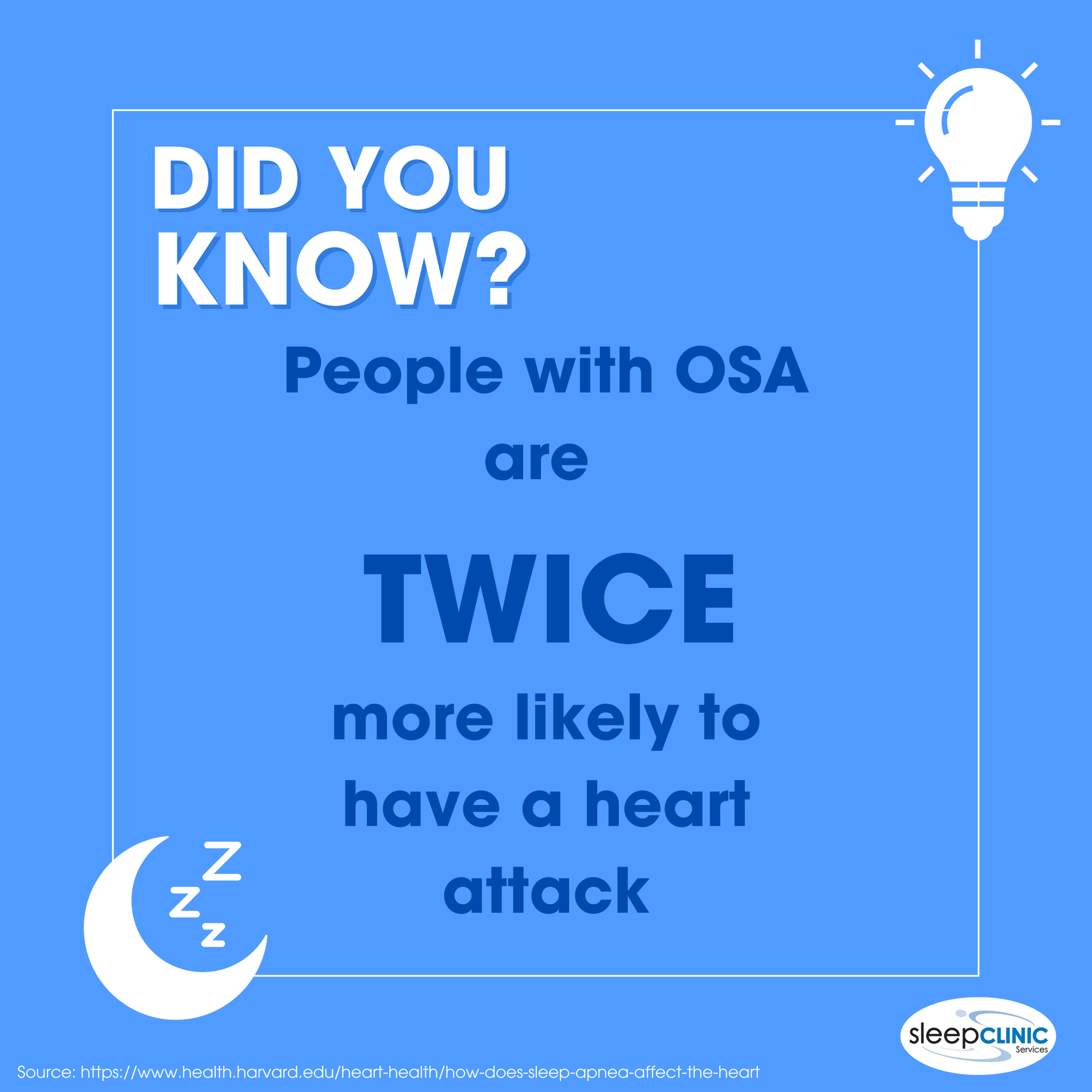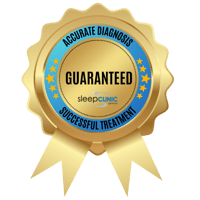Sleep Apnea 101: Understanding the Importance of a Sleep Apnea Test and Where to Get One

Are you tired of feeling tired all the time? Do you find yourself waking up with a headache or feeling irritable during the day? If so, you might be suffering from sleep apnea.
Sleep apnea is a common sleep disorder that affects millions of people worldwide - and 1 in 5 Australians. It occurs when your breathing is interrupted during sleep, causing you to wake up repeatedly throughout the night. This disruption in your sleep can have serious consequences on your health and well-being.
But don't worry, there's hope! The key to managing sleep apnea starts with an accurate diagnosis, which is where a sleep apnea test comes in.
In this article, we'll guide you through the importance of early diagnosis - we'll discuss various testing methods, from the comfort of at-home sleep studies to the ins and outs of the testing process.
Understanding Sleep Apnea: A Quick Guide
There are three types of sleep apnea: obstructive sleep apnea (which is the most common kind), central sleep apnea, and complex sleep apnea.
Obstructive Sleep Apnea (OSA) is the severe form of sleep disordered breathing (SDB).
It works like this: during sleep, the muscles in your throat are supposed to hold the airway open so that air can flow freely into your lungs. However, in people with obstructive sleep apnea, the throat muscles relax too much, and the throat becomes blocked.
When this blockage happens, you stop breathing. These pauses in breathing are called apneas and can last for as little as ten seconds to well over a minute and can happen over 30 times per hour (moderate OSA sufferers experience 15 to 30 events per hour, while people with severe OSA experience 30 or more - some even going as high as a hundred). Your brain, sensing the lack of oxygen, wakes you up slightly to kick-start your breathing again. This process repeats many times throughout the night, disrupting your sleep without you being fully aware of it.
These interruptions not only lead to a poor night's sleep but also cause a drop in oxygen levels in your blood. Over time, this strains your heart, increases your blood pressure, and potentially leads to serious health issues like heart disease, stroke, and diabetes.

Recognising Sleep Apnea: Knowing The Symptoms
Sleep apnea can show up in different ways, and it's not always obvious. Sure, loud snoring and gasping for air are common signs, but there's more to it. You might find yourself overly tired during the day, waking up with headaches, or feeling irritable. Concentration becomes a struggle, and your sleep feels restless. These are all common symptoms.
However, it's important to note that not everyone with sleep apnea will experience all of these symptoms. Some people might just have mild signs, while others face more serious challenges.
If you suspect sleep apnea in yourself or a loved one, it’s wise to seek professional advice to help you figure out what’s really going on. You can also take our free (and professionally recognised) online risk assessment here.
The Impact of Untreated Sleep Apnea
Let’s talk about the serious stuff. When sleep apnea goes untreated, it negatively impacts your health in a big way. We’re talking high blood pressure, heart disease, stroke, diabetes¹ – the whole shebang.
Here's why: those interruptions in your breathing at night starve your body of oxygen, putting extra stress on your heart and blood vessels. Over time, this can lead to high blood pressure, a major risk factor for heart issues and strokes.
And it's not just your physical health at risk. Your mental health is harmed too. Lack of quality sleep impacts your mood, your thinking, your ability to reason and your overall well-being. Depression and anxiety are known side effects².

Why Getting Diagnosed for Sleep Apnea Matters
Your body is a complex machine that needs regular maintenance. Sleep is the body's essential fuel – it rejuvenates you, helps healing, and prepares you for the next day. Sleep apnea disrupts this rejuvenating process.
The interruptions caused by sleep apnea prevent you from reaching deep, restorative sleep stages. It's like having a car engine that starts and stops abruptly, never allowing the vehicle to run smoothly.
Here's why getting diagnosed for sleep apnea matters:
Quality of Sleep: Sleep apnea prevents you from enjoying uninterrupted, deep sleep. As a result, you wake up feeling tired and groggy, even after a full night's rest.
Health Risks: Untreated sleep apnea isn't just a minor inconvenience. It's been linked to some serious health problems like high blood pressure, heart disease, strokes, diabetes, and obesity. Scary, right?
Daytime Functioning: Poor sleep affects your daily life. You might feel excessively tired during the day, have trouble concentrating, and even experience mood swings and depression.
Relationships: Snoring loudly and having irregular sleep patterns due to sleep apnea can affect your relationships. Partners or roommates might also lose sleep due to your snoring, leading to irritability and strained relationships.
Accidents: Sleep apnea can cause excessive daytime sleepiness, greatly increasing the risk of accidents, especially while driving or operating machinery.
Here’s the good news: getting diagnosed for sleep apnea through professional sleep studies allows experts to understand your specific sleep patterns, providing valuable insights into your condition.
With a proper diagnosis, healthcare professionals can tailor treatments or lifestyle changes, to help you enjoy uninterrupted, restful sleep and lead a healthier, more energetic life.
Choosing The Right Sleep Apnea Test: Convenience and Accuracy
Okay, let’s break down the options for diagnosing sleep apnea. There are two main types of tests: in-lab sleep studies and at-home sleep apnea tests.
In-Lab Sleep Studies:
These are typically conducted in a specialised sleep clinic or hospital. During this type of study, you spend a night in a controlled environment while your sleep patterns, brain activity, heart rate, breathing, eye movements, muscle activity, and oxygen levels are monitored. Special sensors and electrodes are placed on your body to collect this data.
These tests give a deep dive into your sleep and breathing, helping healthcare professionals diagnose sleep apnea and gauge its severity. However, they can be pricey and require an overnight stay, which might not suit everyone.
At-Home Sleep Apnea Tests:
If you prefer your own bed versus a hospital bed, you might be eligible for an at-home sleep apnea test.
At-home sleep studies are a convenient and budget-friendly option, especially if getting to a sleep center or hospital is tricky for you. The best part? You get to experience a ‘normal’ night of sleep in your familiar surroundings, providing a more accurate picture of your sleep patterns.
At Sleep Clinic Services we use full polysomnograms, similar to those used in top hospitals, to ensure an accurate diagnosis. We provide nationwide support and deliver the equipment straight to your door, with user-friendly instructions (and videos) to keep the set up as easy as possible.
Cost and Insurance Coverage for Sleep Apnea Tests
In-lab tests usually cost more than at-home ones. That's the general rule.
However, the cost of sleep apnea tests can vary depending on the type of test and the location where it is conducted. The cost can also vary depending on your specific needs. For example, you may only need a screening instead of a full sleep study.
It's also important to note that the cost of these tests is often covered (at least in part) by Medicare. They get it - diagnosing and treating sleep apnea matters.
It sounds confusing, but give us a call and we can talk you through your options and the Medicare process.
Taking Charge of Your Sleep
The bottom line? Don't let sleep apnea mess with your life. Take that first step, get a proper diagnosis, and reclaim your peaceful nights - you deserve it!
If you think you or someone you care about might have sleep apnea, don’t hesitate to get help. The team at Sleep Clinic Services can guide you through the diagnosis process and help you find the best solution for a good night's sleep.
Get in touch today for an obligation free chat with one of our friendly Care Coordinators, or schedule a call and we will call back at a time you choose.

What's it like getting a sleep study with Sleep Clinic Services?


















Care you can trust. For over a decade, Australia's best provider.

Get in touch
Are you ready to reclaim peaceful restorative sleep?
Wherever you are, we can help.
As Australia's leading provider of telehealth screening, diagnosis and solutions for 'sleep disordered breathing' sufferers, we care for people all around Australia.
Questions?
Call during business hours or fill in the form and we'll call you back at the time you choose. No cost, no obligation.


